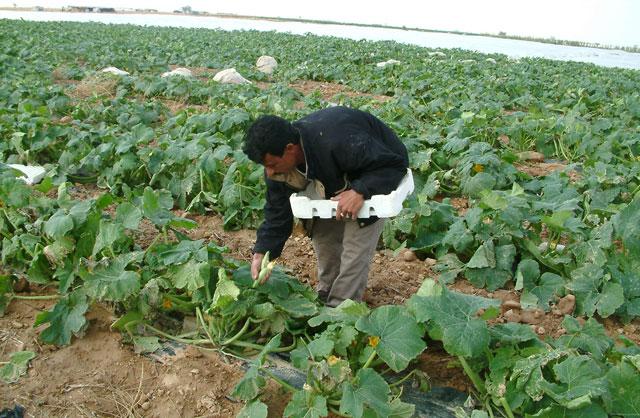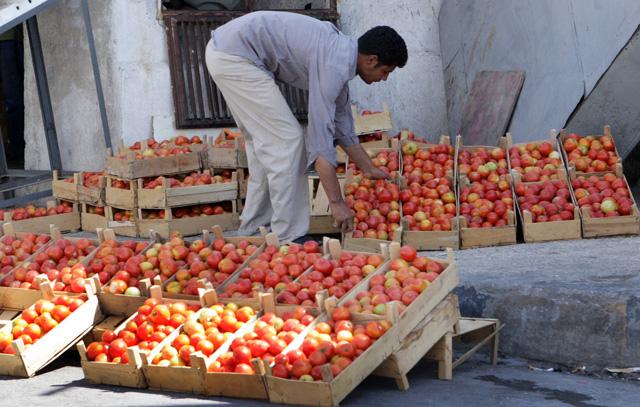You are here
‘Agricultural exports rise in 2014 despite Syrian crisis’
By Hana Namrouqa - Dec 23,2014 - Last updated at Dec 23,2014

AMMAN — The country’s fruit and vegetable exports during this year increased by 7 per cent, while its sheep exports increased by 15 per cent compared to last year, a senior government official said Tuesday.
During the first 10 months of this year Jordan exported 822,000 tonnes of fruit and vegetables and 550,000 heads of cattle, compared to 450,000 heads of cattle in 2013 and 350,000 heads of cattle in 2012, Agriculture Minister Akef Zu’bi said at a press conference.
“The rise in our agricultural exports is a good thing because it means more revenues and more reserve of hard currency,” Zu’bi told reporters.
He noted that due to the ongoing Syrian crisis, the country’s exports to Europe, which used to total 60,000 tonnes of fruits and vegetables each year, have declined, compelling the country to seek new portals and enhance existing ones.
“We concentrated on our conventional markets, such as the Gulf countries, and continued exporting to Syria and Lebanon. However, the real reinforcement to our exports came from the Iraqi market,” Zu’bi said.
The minister noted that following negotiations with the Iraqi government, the latter granted Jordan privileges last year, such as expediting the process of issuing exporting licences to Iraqi exporters and expanding the expiry date of visas issued to Jordanian truck drivers from one month to six months.
Zu’bi said the Iraqi government recently agreed to reduce the fees collected from each Jordanian truck entering Iraq from $2,200 to $700.
In addition, the Iraqi government suspended inspection by a private company on Jordan’s livestock exports, the minister said, noting that the inspection by the private company was creating hurdles, including financial, on the export process of livestock.
The ministry also said Tuesday that Jordan has exported 85,000 tonnes and imported 84,000 tonnes of fruits and vegetables to and from Syria since the beginning of this year.
The Jordan News Agency, Petra, quoted Salah Tarawneh, the marketing and information assistant to the ministry’s secretary general, as saying that the exchange of fruits and vegetables between Jordan and war-hit Syria is going smoothly with no hindrances.
Meanwhile, Zu’bi said agricultural companies can now benefit from a World Bank-funded programme implemented by the Central Bank of Jordan (CBJ) at a cost of $900 million.
Under the programme, the central bank cooperates with commercial banks in providing loans to small- and medium-sized companies at preferential interest rates and preferential payback periods, according to the minister, who said that agricultural companies were previously excluded from the programme.
Zu’bi said the ministry recently secured CBJ’s approval to include agricultural companies as well, noting that this will increase the investment volume in the agricultural sector.
“The volume of agricultural companies’ loans from commercial banks in Jordan stands at JD265 million per year,” the minister added.
Related Articles
Jordan exports 2,100 tonnes of agricultural produce daily, half of which are tomatoes, government officials said on Tuesday.
Jordan’s fruit and vegetable exports increased by 12 per cent last year compared to 2013, government officials said on Saturday.
Jordan’s exports of fruit and vegetables during the first nine months of this year increased by 14 per cent compared to the same period last year, government officials said on Wednesday.













